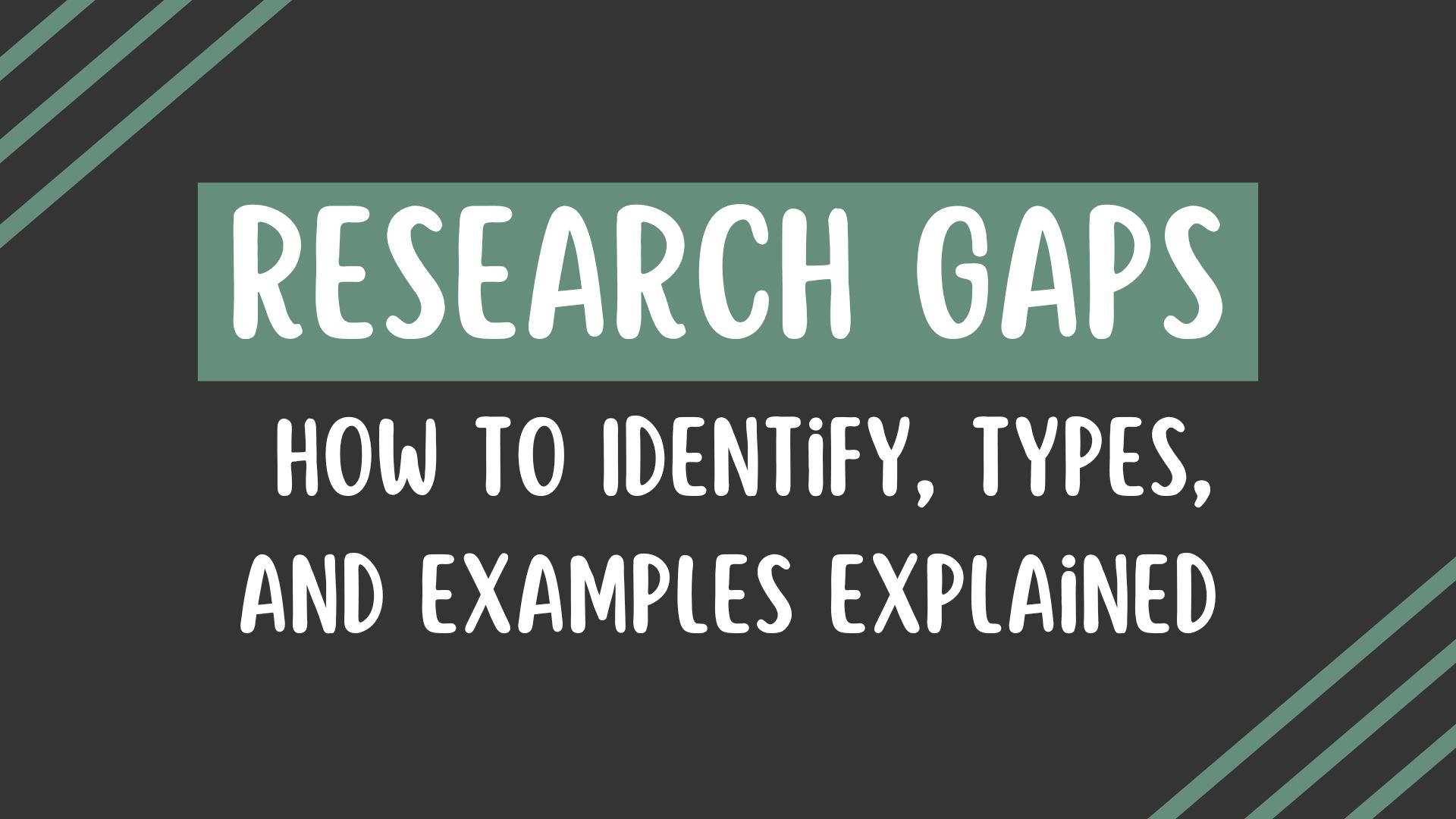

Advanced Higher Geography Issues Sample Essay (1144 Words)
- July 10, 2024
Dr. Marvin L. Smith
Advanced Higher Geography delves into the intricate relationships between human societies and the natural environment, exploring critical global issues that shape our world. This field challenges students to analyze complex geographical phenomena, from climate change and urbanization to resource management and environmental sustainability. By examining these interconnected issues, Advanced Higher Geography provides a comprehensive understanding of the dynamic processes influencing our planet, equipping students with the knowledge and skills necessary to address the pressing challenges of the 21st century.
Title: Advanced Higher Geography: Navigating the Complex Terrain of Global Issues
In the realm of Advanced Higher Geography, students are challenged to grapple with some of the most pressing issues facing our planet today. These issues span a wide range of topics, from climate change and environmental degradation to urbanization and resource management. This essay aims to explore three critical geographical issues in depth: the multifaceted impacts of climate change, the challenges and opportunities presented by rapid urbanization, and the complexities of managing natural resources in a globalized world.
Climate Change
Climate change stands as one of the most significant challenges of our time, with far-reaching consequences for both human societies and natural ecosystems. The Intergovernmental Panel on Climate Change (IPCC) has consistently warned that without dramatic reductions in greenhouse gas emissions, the world faces potentially catastrophic consequences.
One of the most visible impacts of climate change is the rise in global temperatures. The World Meteorological Organization reports that the past decade was the warmest on record, with 2020 tying for the warmest year ever recorded. This warming trend has profound implications for weather patterns, leading to more frequent and intense extreme weather events such as hurricanes, heatwaves, and droughts.
The effects of climate change are not distributed evenly across the globe. Low-lying coastal areas and small island nations face existential threats from rising sea levels. The Maldives, for instance, could become uninhabitable by the end of this century if current trends continue. Meanwhile, regions like the Arctic are warming at twice the global average rate, leading to rapid ice melt and disrupting both local ecosystems and global climate patterns.
Climate change also poses significant risks to biodiversity. The warming climate is altering habitats faster than many species can adapt, leading to shifts in species distributions and, in some cases, extinctions. The Great Barrier Reef, for example, has experienced several mass bleaching events in recent years due to rising ocean temperatures, threatening one of the world’s most diverse marine ecosystems.
Addressing climate change requires a multifaceted approach. Mitigation strategies focus on reducing greenhouse gas emissions through renewable energy adoption, improved energy efficiency, and changes in land use practices. Adaptation strategies, on the other hand, aim to build resilience to the impacts of climate change that are already locked in. This might include developing drought-resistant crops, improving flood defenses, or redesigning urban areas to cope with higher temperatures.
Urbanization
Urbanization represents another key issue in Advanced Higher Geography. The United Nations projects that by 2050, 68% of the world’s population will live in urban areas, up from 55% in 2018. This rapid urbanization presents both challenges and opportunities for sustainable development.
The rise of megacities – urban areas with populations exceeding 10 million – is a defining feature of modern urbanization. Cities like Tokyo, Delhi, and São Paulo have become hubs of economic activity, innovation, and cultural exchange. However, they also face significant challenges in terms of infrastructure, housing, and environmental sustainability.
One of the key issues associated with rapid urbanization is the growth of informal settlements or slums. In many developing countries, the pace of urban growth has outstripped the capacity to provide adequate housing and basic services. The UN-Habitat estimates that about 1 billion people currently live in slums worldwide, facing challenges such as lack of clean water, sanitation, and secure land tenure.
Urban sprawl is another concern, particularly in North America and parts of Europe. As cities expand outwards, they often consume valuable agricultural land and natural habitats. This pattern of development can lead to increased car dependency, higher energy consumption, and loss of biodiversity.
However, urbanization also presents opportunities for more sustainable living. Cities, when well-planned, can be more energy-efficient than rural areas due to economies of scale in service provision and the potential for effective public transportation systems. The concept of “smart cities” leverages technology to improve urban management, from traffic flow optimization to energy-efficient buildings.
Urban planners are increasingly adopting principles of sustainable urban development. This includes promoting mixed-use neighborhoods to reduce commuting needs, incorporating green spaces for biodiversity and climate resilience, and prioritizing pedestrian and cyclist-friendly infrastructure. Cities like Copenhagen and Singapore have become global leaders in sustainable urban planning, offering models for others to follow.
Resource Management
The management of natural resources is a critical issue in Advanced Higher Geography, encompassing topics such as water scarcity, deforestation, and the transition to renewable energy sources. As global population and consumption levels continue to rise, the pressure on finite resources intensifies, necessitating more sustainable approaches to resource management.
Water scarcity is emerging as one of the most pressing resource issues of the 21st century. The World Resources Institute predicts that by 2040, 33 countries are likely to face extremely high water stress. This scarcity is driven by factors including population growth, increased agricultural and industrial demand, and climate change impacts on water availability.
The management of transboundary water resources adds another layer of complexity to this issue. Rivers like the Nile, Mekong, and Indus cross multiple national borders, requiring international cooperation for their effective management. Disputes over water rights have the potential to exacerbate regional tensions, as seen in the ongoing negotiations over the Grand Ethiopian Renaissance Dam on the Nile.
Deforestation represents another critical resource management challenge. Forests play a crucial role in climate regulation, biodiversity conservation, and the livelihoods of millions of people. However, large-scale deforestation continues in many parts of the world, driven by agricultural expansion, logging, and infrastructure development. The Amazon rainforest, often described as the “lungs of the Earth,” has lost significant areas to deforestation in recent years, with potentially global consequences for climate and biodiversity.
The transition to renewable energy sources is a key aspect of sustainable resource management. As the world seeks to reduce greenhouse gas emissions, there is growing investment in technologies such as solar, wind, and hydroelectric power. However, this transition also presents challenges, including the need for large-scale infrastructure development and the environmental impacts of renewable energy projects themselves.
The concept of the circular economy is gaining traction as a more sustainable approach to resource management. This model aims to minimize waste and make the most efficient use of resources by designing products for reuse, recycling, and remanufacturing. Countries like the Netherlands and Japan have been at the forefront of implementing circular economy principles, offering valuable lessons for others.
In conclusion, Advanced Higher Geography challenges us to engage with some of the most complex and pressing issues facing our planet. From the global challenge of climate change to the local impacts of urbanization and the intricate balance required in resource management, these issues demand interdisciplinary understanding and innovative solutions. As we navigate these challenges, it becomes clear that geographical knowledge and skills are more crucial than ever in shaping a sustainable future for our planet.
Ready to transform your writing experience?
Sign up for Blainy today and start writing your papers with confidence!
About the Author:

How to Fix and Prevent Run-on Sentences

Research Gaps: How to Identify, Types, and Examples Explained

Is Using ChatGPT Cheating?

Blainy vs. ChatGPT

FANBOYS: Coordinating Conjunctions

Research Findings Guide: Examples, Types, and Structuring Tips

Academic writing made brilliantly simple, always.
Limited time offers 🎁🎉.
Black Friday Sale
Cyber Monday Sale
Discover More
50+ Free AI Tools
Feature Updates
✉ [email protected]
✆ +971 50 760 0820
📍190 Hackett Inlet, Eastern Region, Dubai, UAE.
Terms & Condition
Privacy Policy
Copyright © 2024 Blainy
- Past papers
- National Qualifications > Subjects > Geography > Advanced Higher > Advanced Higher Geography
Advanced Higher Geography
Alternative certification model.
The alternative certification model is how National 5, Higher and Advanced Higher courses will be resulted this year, following the cancellation of the 2021 exams. It involves five different stages.
View the alternative certification model and see what will happen at each stage.
Essential Information
Course specification.
Explains the structure of the Course, including its purpose and aims and information on the skills, knowledge and understanding that will be developed.
- Advanced Higher Geography Course Specification (Gaelic Medium) February 2020
- Advanced Higher Geography Course Specification September 2019
2022 revision support for learners
- 2022 revision support for learners: Advanced Higher Geography
Past Papers and Marking Instructions
Access all past papers by subject/level
Additional question papers resources
Illustrates the standard, structure and requirements of the question papers candidates will sit (includes marking instructions).
- Advanced Higher Geography Specimen Question Paper (Gaelic Medium) July 2020
- Advanced Higher Geography Specimen Question Paper September 2019
There were no exams in 2021. The 2020-21 question paper resources are, for most subjects, modified papers which reflect the modifications put in place for session 2020-21
Advanced Higher Geography Question Paper
Advanced Higher Geography Question Paper Marking Instructions
Advanced Higher Geography Supplementary Items
Advanced Higher Geography Supplementary item A - OS map (7.15 MB)
Advanced Higher Geography Supplementary Item C
Advanced Higher Geography Supplementary Item D

Coursework ( 30/09/2023 )
This section provides information on marking instructions and/or the coursework assessment task(s). It includes information that centres need to administer coursework and must be read in conjunction with the course specification.
- Coursework Assessment Task for Advanced Higher Geography September 2023
- Guidance on conditions of assessment
- Coursework for External Assessment
Understanding Standards ( 25/10/2024 )
- Examples of candidate evidence with commentaries
Further examples of candidate evidence and commentaries can be found on the SQA Secure Site. You can access these through your SQA Coordinator
Webinar (recording)
Overview Project-folio webinar 7 December 2016 part 1
- Download part 1 (49.81 MB)
Overview Project-folio webinar 7 December 2016 part 2
- Download part 2 (31.46 MB)
- Project-folio 7 December 2016 Q and A (25 KB)
- Project-folio 7 December 2016 Candidate Evidence - Carron Water Study (1.46 MB)
- Project-folio 7 December 2016 Candidate Evidence - Climate Change Issues (3.01 MB)
Audio Presentation
- Overview of course assessment 2019 (14 minutes) (19.25 MB)
- Overview of course assessment 2021 (35.27 MB)
Changes to Understanding Standards materials
- Changes to published Understanding Standards materials for all subjects
Please note: Understanding Standards materials are regularly reviewed to ensure they remain up to date.
Additional Resources session 2020-22
Further information can be found on the Understanding Standards Website.
Course reports ( 23/09/2024 )
Course reports.
- 2024 Advanced Higher Geography course report September 2024
- 2023 Advanced Higher Geography course report September 2023
- 2022 Advanced Higher Geography course report September 2022
Verification Reports
- Geography Qualification Verification Summary Report June 2019
- Geography Verification Key Messages Round 1 March 2018
Ushare open learning resources
Where can you take this course?
Centre Finder
Helper-buttons.

Advanced Higher
Advanced Higher Geography Course
Unit 1 Geographical Methods and Techniques
- Physical and Human Fieldwork Techniques
- Presentation of Geographical Data
Unit 2 Geographical Study (40% of grade – 80 marks)
25-page report/dissertation on an in-depth fieldwork/research study on a topic of your choice.
Unit 3 Geographical Issues (30% of grade – 60 marks)
12-page essay, critically analysing 3 viewpoints on a Geographical issue of your choice
Final exam (30% of grade – 60 marks)
There are three sections to the exam and you must answer a question from each section . The exam lasts 2½ hours
- Mapping (30 marks),
- Data analysis (20 marks)
- Fieldwork (10 marks)
Please note that there is a compulsory field trip that pupils must attend.
SQA Advanced Higher Geography: http://www.sqa.org.uk/sqa/38867.html

- You don't have any recent items yet.
- You don't have any modules yet.
- Add Modules
- You don't have any books yet.
- You don't have any Studylists yet.
Quiz : 1. Geographical Issues Handout
What is the recommended word count for the completed geographical issue essay?
How many key sources are required for the geographical issue essay?
What is the purpose of justifying the choice of a current complex geographical issue to critically evaluate?
What is the format of the essay in terms of sections and word count?
What is the importance of having sources that do not all agree with each other in the geographical issue essay?
What is the purpose of the critical commentary and conclusion section in the geographical issue essay?
What is the maximum word count for the geographical issue essay to avoid penalties?
What is the importance of presenting direct quotes from sources in a distinct way in the essay?
What is the significance of reaching reasoned conclusions supported by evidence in the geographical issue essay?
What is the purpose of the introduction section in the geographical issue essay?
Quiz questions
Question 1 of 10 What is the recommended word count for the completed geographical issue essay? A 1,800 words B 1,500 words C 2,000 words D 2,500 words Explanation The word count for the completed geographical issue should not be between more than 1,800 words in length.
Question 2 of 10 How many key sources are required for the geographical issue essay? A Four B Two C Five D Three Explanation You should have identified and used three sources of sufficient quality.
Question 3 of 10 What is the purpose of justifying the choice of a current complex geographical issue to critically evaluate? A To list the bibliography B To summarize the viewpoints C To justify the choice of topic D To explain the relevance of the issue Explanation You should aim to justify your choice of topic explaining the purpose of researching the topic, the relevance of the issue in the context, and why the issue is worth learning about.
Question 4 of 10 What is the format of the essay in terms of sections and word count? A Introduction, Source 1, Source 2, Source 3, Conclusion B Introduction, Background Reading, Evaluation, Conclusion C Introduction (150 words), Source 1 (300 words), Source 2 (300 words), Source 3 (300 words), Critical commentary and conclusion (750 words) D Introduction, Analysis, Conclusion Explanation The essay should include an introduction, three source sections, and a critical commentary and conclusion, with specific word counts for each section.
Question 5 of 10 What is the importance of having sources that do not all agree with each other in the geographical issue essay? A To limit the scope of the essay B To avoid contradictions C To enhance critical analysis D To simplify the essay structure Explanation Your sources should not all agree with each other the same way, and so you will be expected to criticize the points they make, setting what one says against another and discussing in the conclusion what you think is the correct point of view.
Question 6 of 10 What is the purpose of the critical commentary and conclusion section in the geographical issue essay? A To reach a reasoned conclusion based on evidence B To summarize the sources C To evaluate the sources D To introduce the topic Explanation The critical commentary and conclusion section should make a direct and explicit statement about the strength of the arguments made in sources, using contrasting arguments to explain which seems stronger, and reach a reasoned conclusion based on the evide
Question 7 of 10 What is the maximum word count for the geographical issue essay to avoid penalties? A 1,800 words B 2,000 words C 2,500 words D 1,500 words Explanation The issue should have no more than 1,800 words. If the word count exceeds the maximum, a penalty will be applied.
Question 8 of 10 What is the importance of presenting direct quotes from sources in a distinct way in the essay? A To confuse the readers B To increase word count C To acknowledge sources and avoid plagiarism D To save space in the essay Explanation Presenting direct quotes from the sources in such a way that they are distinct from the main text is crucial to ensure proper acknowledgment and avoid plagiarism.
Question 9 of 10 What is the significance of reaching reasoned conclusions supported by evidence in the geographical issue essay? A To repeat information from earlier sections B To summarize key elements and provide an overall judgment C To introduce new arguments D To ignore conflicting viewpoints Explanation The conclusion(s) should summarize the key elements or points, include an overall judgment, show a clear understanding of the issue, consider all the viewpoints researched, show some insight, and be supported by organizing, linking, or sequencing of ideas
Question 10 of 10 What is the purpose of the introduction section in the geographical issue essay? A To set the geographical scene and introduce the topic of the argument B To summarize the sources C To introduce acronyms D To provide a brief history and outline the debate Explanation The introduction should set the geographical scene for the topic, introduce the topic of the argument, and introduce the three key sources and their involvement in the discussion without including arguments that will be used later in the main text.
- Skip to main content
- Skip to header right navigation
- Skip to site footer
Your route to skills, training and work.
Advanced Higher Geography
The course is designed for a range of candidates, from those who wish to achieve a greater understanding of the environment and their place in it, to those who wish to progress to more specialised training, further education, or entry into a diverse range of occupations and careers.
Harlaw Academy
Course Outline
The Advanced Higher qualification in Geography aims to give learners an in-depth understanding of complex ideas about how the world works.
The course provides learners with the chance to carry out their own research on geographical issues of interest to themselves, with an emphasis on fieldwork.
Course Assessment
There will be 2 elements that are externally assessed:
Question Paper 50 / 150
The exam comprises 3 topics looking at:
- Question 1 – Map Interpretation
- Question 2 – Gathering and Processing Techniques
- Question 3 – Geographical Data Handling
Folio 100 / 150
- Geographical Study
- Geographical Essay
There will be 2 internal unit assessments:
Geographical Skills
Developing a range of geographical methods and techniques. These include mapping skills, graphical techniques, and a wide range of statistical techniques for gathering, analysing, and interpreting geographical data.
Geographical Issues
Developing critical thinking and the ability to evaluate viewpoints using evidence from a wide range of sources on complex, current geographical issues.
Links to further information
- ABZ Works – Growth Sector (Life Sciences)
- SQA Course Specification
Potential Pathways beyond this course:

University of Aberdeen Geography & Environment
Life Sciences

COMMENTS
Advanced Higher Geography Issues Essay. 40 marks (40/150) - 1800 words. What it's all about. You must select a relevant 'Geographical Issue' you wish to investigate. The best essays are on issues which are current, relevant and have some degree of controversy or strongly contrasting views. You can select a local issue or a world-wide issue.
Title: Advanced Higher Geography: Navigating the Complex Terrain of Global Issues. In the realm of Advanced Higher Geography, students are challenged to grapple with some of the most pressing issues facing our planet today. These issues span a wide range of topics, from climate change and environmental degradation to urbanization and resource ...
Advanced Higher Geography Specimen Question Paper September 2019; 2021. There were no exams in 2021. The 2020-21 question paper resources are, for most subjects, modified papers which reflect the modifications put in place for session 2020-21 . Advanced Higher Geography Question Paper. Advanced Higher Geography Question Paper Marking Instructions
Adv Higher Geography Project-Folio 2019 | Geographical Issue Candidate 1 SQA | www.understandingstandards.org.uk 7 of 8. Adv Higher Geography Project-Folio 2019 | Geographical Issue Candidate 1 ... delivers essays on conflicts between environmental, social and economic impacts of world issues and this is relevant to help us understand the ...
introduction; 'This essay will investigate whether an LEZ should be introduced to the Capital'. ... information and demonstrates insight into the topics. Advanced Higher Geography Folio (Geographical Study) 2022-23 Commentaries SQA | www.understandingstandards.org.uk 3 of 10
My issues essay was on the Three Georges Dam, there's a lot of information out there and you shouldn't have too much of a problem looking for sources. Other good topics would be on malaria, primary health care, biofuels or even the one child policy in China. We were advised to look at current affairs in the news, and have a look at articles on google scholar etc.
Advanced Higher Geography Course. Unit 1 Geographical Methods and Techniques. Physical and Human Fieldwork Techniques ... 25-page report/dissertation on an in-depth fieldwork/research study on a topic of your choice. Unit 3 Geographical Issues (30% of grade - 60 marks) 12-page essay, critically analysing 3 viewpoints on a Geographical issue ...
Course specification advanced higher geography course code: c833 77 course assessment code: x833 77 scqf: level (32 scqf credit points) valid from: session this. Skip to document. University; ... Semester 2 Essay Topics 2016. Geography 2 None. More from: Geography 2 GEOG2016. University of Glasgow. 11 Documents. Go to course. 6. Geography Essay ...
You should aim to justify your choice of topic explaining the purpose of researching the topic, the relevance of the issue in the context, and why the issue is worth learning about. Question. ... The essay should include an introduction, three source sections, and a critical commentary and conclusion, with specific word counts for each section.
The Advanced Higher qualification in Geography aims to give learners an in-depth understanding of complex ideas about how the world works. ... The exam comprises 3 topics looking at: Question 1 - Map Interpretation ... Geographical Essay; There will be 2 internal unit assessments: Geographical Skills. Developing a range of geographical ...